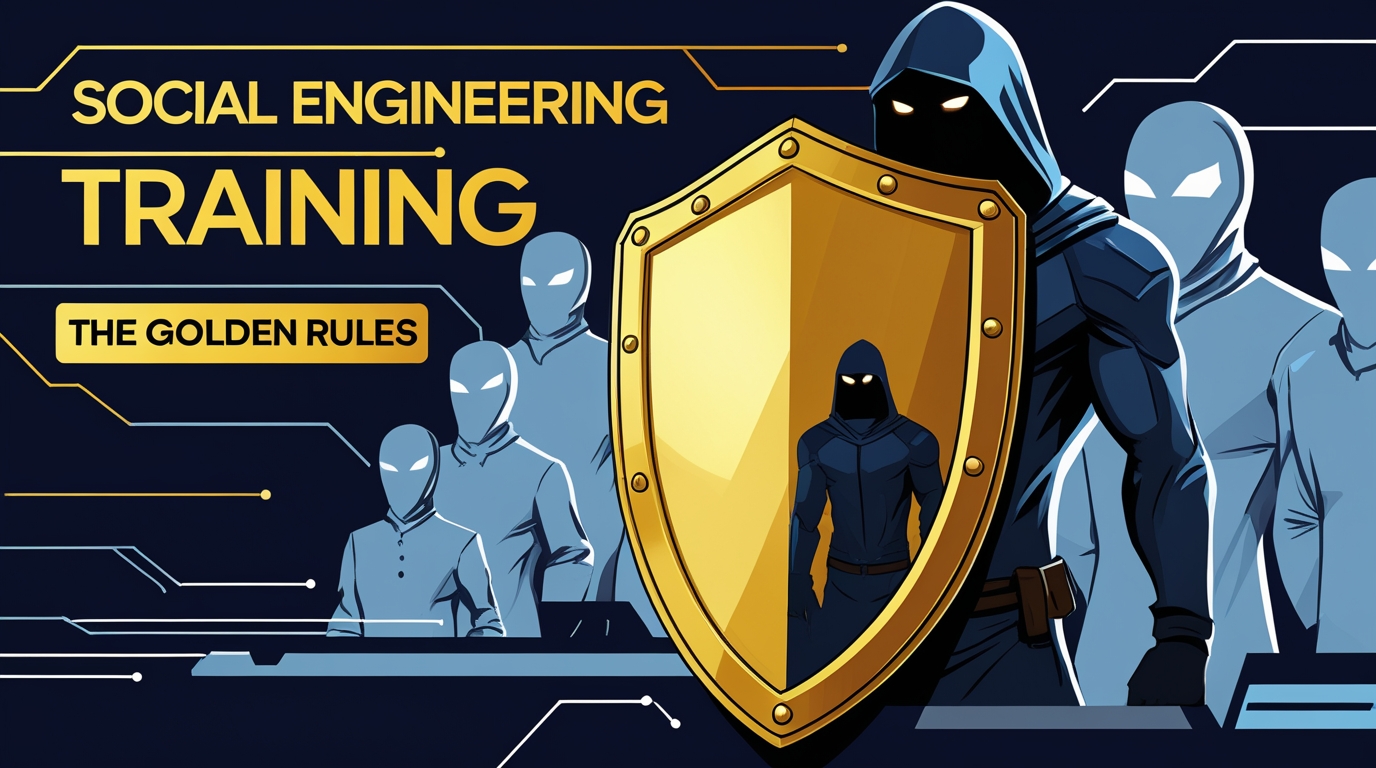Let’s be honest. You can have the best firewall in the world. You can use 20-character passwords with symbols and numbers. You can encrypt everything until your computer fans sound like a jet engine. And none of it will matter one bit if someone can just call you up, sound friendly, and convince you to hand over the keys.
That’s social engineering. It’s not a hack of your systems; it’s a hack of you. It preys on our human wiring, our desire to be helpful, our fear of getting in trouble, and our tendency to trust authority. I’ve seen incredibly smart people get completely taken in by a smooth talker who knew which buttons to push. This isn’t about being paranoid. It’s about being skeptical in the right ways. Here are the golden rules to live by.
Rule #1: Verify, Then Trust. Every. Single. Time:
This is the number one rule, the hill I will die on. Trust is not a default setting. It’s something that must be earned through verification.
The classic scam goes like this: You get a call. “Hi, this is Mike from IT. We’ve detected a critical virus on your machine. We need your password to clean it immediately.” Your heart jumps. A virus! You don’t want to be the one who caused a security breach. So you comply.
Stop. Breathe.
The correct response is not “Okay, sure.” The correct response is, “That’s no problem. Let me just hang up and call you right back at the main IT helpdesk number I have on the company website.”
A real IT person will say, “Of course, that’s a smart move.” A scammer will panic. They’ll pressure you. “There’s no time!” or “The system will crash if we wait!” That pressure is your red flag. Hang up. Always use a known, independent method to verify the person’s identity. Never use the contact information they provide.
Rule #2: Slow Down. Urgency is Their Weapon:
Scammers manufacture a crisis. They create a false sense of urgency that short-circuits your logical brain. Your boss is “angry and needs a gift card right now.” There’s a “warrant for your arrest” unless you pay with Bitcoin. Your “account will be closed in the next ten minutes.”
When someone tries to rush you, that is the moment you need to slam on the brakes.
Your new mantra: “If it’s urgent, it can wait five minutes for me to think.” Legitimate problems allow for a moment of verification. Frauds collapse under the slightest scrutiny. That five-minute pause is your superpower. Use it to call a colleague, look up a real phone number, or just ask yourself, “Does this really make sense?”
Rule #3: The Principle of Least Privilege is for People, Too:
In tech, we give users only the access they absolutely need to do their job. We need to apply the same logic to information.
You get an email from “the CFO” asking for a list of all employee salaries. Your brain might think, “The CFO has a right to this.” But does this specific person need it right now? Is this a normal request for them to make via email?
Before you share sensitive data, ask yourself: “Does this person have a legitimate, immediate need to know this?” If the answer isn’t a clear “yes,” you must verify the request through a different channel. A quick Teams message to the CFO: “Hey, just got your email request for the salary list, wanted to double-check it was you before I send it.” A real executive will appreciate your diligence.
Rule #4: If It Feels Weird, It Probably Is. Trust Your Gut:
We’re often taught to ignore our instincts in professional settings. That’s a mistake. That little voice in your head that says, “Huh, that’s strange…” is your best defense.
Maybe the “CEO’s” email signature is slightly off. Maybe the “vendor” is calling from a personal Gmail address. Maybe the “IT guy” is getting unusually frustrated that you’re asking questions.
Do not dismiss that feeling. Your subconscious is often better at spotting inconsistencies than your conscious mind. You don’t need to be able to articulate exactly what’s wrong. If your spidey-sense is tingling, it’s enough to say no, stop the conversation, and escalate. It’s always better to be safe and slightly embarrassed than sorry and completely compromised.
Wrapping Up:
The goal of this training isn’t to make you cynical or unhelpful. It’s to make you a gracious skeptic. You can be polite and still be secure.
“Thanks so much for calling! Let me just get your number from the website and call you right back to be safe.”
“I’d be happy to help with that. Let me just run it by my manager first to make sure we’re following protocol.”
This isn’t about being difficult. It’s about being a professional. Make these rules a habit. Because the strongest security system in the world has one critical vulnerability: the person using it.
FAQs:
1. What’s the most common social engineering tactic?
Phishing emails are the most common, but vishing (voice phishing) calls are often more successful and damaging.
2. How do I report a suspicious request?
Immediately forward phishing emails to your IT security team and report suspicious calls to your manager.
3. Are older employees more vulnerable?
Not necessarily; attackers target everyone, and younger employees are often just as susceptible to sophisticated scams.
4. What’s the best way to verify a caller’s identity?
Hang up and call them back using a verified, public phone number from an official website or directory.
5. Can social engineering be used for physical access?
Yes, “tailgating,” where someone follows you into a secure building without badge access, is a classic physical social engineering tactic.
6. What if I already fell for a scam?
Report it to your IT and security team immediately; quick reporting can contain the damage and help protect others.
